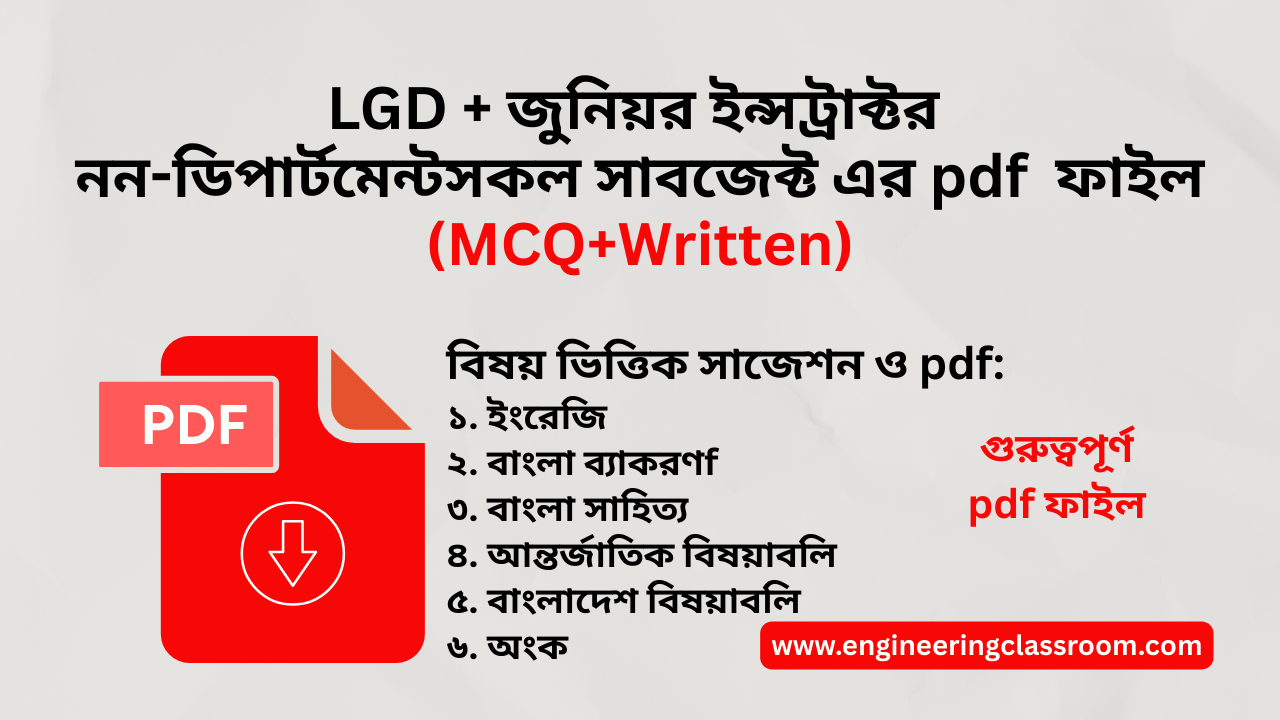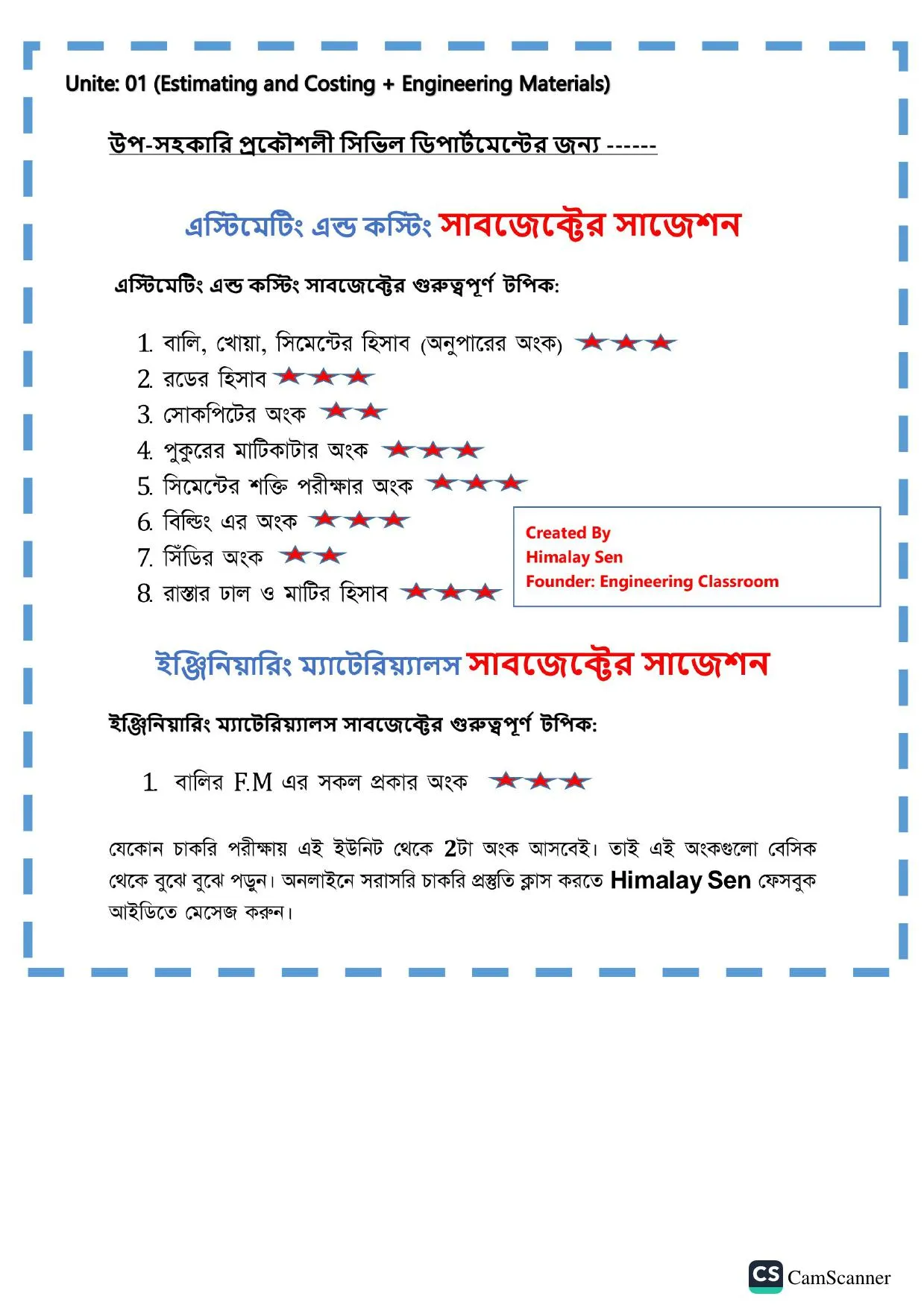MCQ
1. What do you mean by BOD?
Bacteria of damage
Before oxidation damage
Biochemical oxygen demand
Best organized demand
2. CPM stands for -
Combined process method
Critical path method
Common Planning Method
Critical process method
3. What is the percentage of silica for 1st class bricks?
55%
65%
75%
50%
4. Standard Penetration test (SPT) tube length_
6"
12"
18"
24"
5. A fixed point of reference of known elevation is called-
change point
station point
bench mark
datum
6. Vicar's apparatus is used to determine the-
initial setting time of cement
final setting time of cement
normal setting time of cement
all of these
7. The spacing of vertical stirrups in a rectangle beam is-
maximum near the support
minimum near the support
maximum near the center
minimum near the center
8. Which is the time range for initial setting time and final setting time for Ordinary Portland Cement?
30 minutes-10 hours
20 minutes-8 hours
15 minutes-6 hours
None of the above
10. The maximum water cement ratio durable concrete is-
0.2
0.04
0.6
0.8
11. the diameter of longitudinal bars in column should not be less than
4mm
8mm
12mm
16mm
12. In Vicat's apparatus, the diameter of vicat plunger is
50mm
15mm
10mm
20mm
13. What is the percentage of strength gain of Ordinary Portland cement after 28days curing?
50%
60%
70%
80%
14. 0.1 kg sand of FM 2.00 is mixed with another 500 gm sand of FM 2.60. Determine the combined FM
2.50 FM
2.20 FM
2.60 FM
2.30 FM
15. Asphalt cement usually used in Bangladesh has the penetration range of-
AC 40-50
AC 60-70
AC 85-100
AC 120-150
16. A manometer is used to measure
low pressure
high pressure
moderate pressure
atmospheric pressure
17. The top diameter and height of the mould used for slump test area respecibily
100 mm, 200mm, 300 mm
200 mm, 100 mm, 300 mm
200 mm, 300 mm, 100 mm
100 mm, 300 mm, 200 mm
18. The slump test of concrete is used to measure-
workability
impact value
nomogenetic
tensile strength
19. At the neutral axis of a beam the shear stress is-
zero
minimum
maximum
infinity
20. Generally the compressive strength for good bricks is-
100-110% kg/cm²
120-130% kg/cm²
140-150% kg/cm²
150-160% kg/cm²















